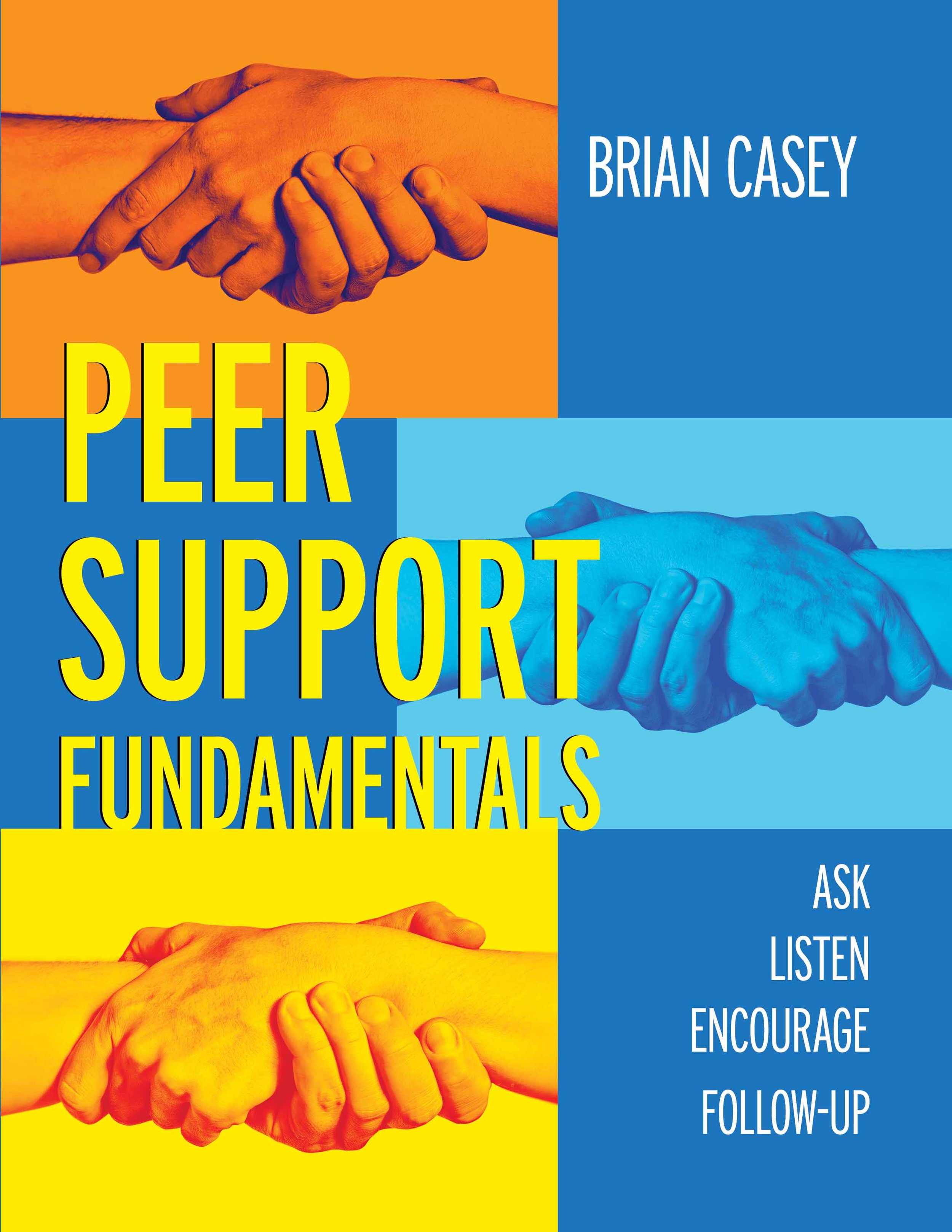Peer Support Fundamentals
Read an excerpt from Brian Casey’s Peer Support Fundamentals below, or download a PDF. (949 KB)
Introduction
Once in a job interview, I was asked why I was hoping to leave my current job, I said something like, “It was the best place I ever worked and the worse place I ever worked.” And the interview panel all laughed as if they fully understood. Work can be hard, and made harder by both caring a lot or a little. For many, it is one of our central social experiences that may both trouble and sustain us. What made my workplace the best? And the worst? My coworkers. At our best, we shared the good times and made the bad times better together. Peer support is taking this coworker synergy and making it intentional.
This book combines two of my enduring passions: health and wellbeing with a special focus on mental health and personal growth, and public safety work. At nineteen, I started working on an ambulance as an EMT while obtaining a teaching degree in Health Education. I went on to work twenty years as a paramedic and EMS educator before changing careers and becoming a police officer. At the time of this writing, I am a police sergeant and director of my agency’s Employee Assistance Program. I dedicate myself to building and maintaining trust while assuring easy access to mental health support and resources.
I have written two other books. Good Cop, Good Cop: A Get Healthy, Stay Healthy Guide for Law Enforcement which is a health and wellness book for public safety workers which detailing a range of wellness topics. Ambulance Man: A Memoir about my entry into ambulance work and early days as a paramedic.
Here, in Peer Support Fundamentals, I am able to honor peer support which I believe is a fundamental, yet underappreciated, pathway to health and wellbeing. Peer support, with its origins in communal healing and protection, is possibly the most direct, economical, and often immediately available, route to improving our own lives and the lives of others. Decades of experience working in public safety, as an EAP director, health educator, and peer support team coordinator enable me to speak in simple and relatable terms about the most pressing mental and emotional issues that peer team members may encounter. Although Peer Support Fundamentals has its origins in helping public safety workers, the lessons here will be useful to any workgroup.
Peer support can be like this: Imagine you are lost and alone in a big city (or in the woods if you prefer). Your cellphone is dead, and you are late for an important meeting. You have a vague recollection of the place you are supposed to go and know it is within walking distance, but can’t recall the building’s name or address. However, you would recognize the entrance if you saw it. Feeling forlorn and a bit frightened, a local recognizes that you appear lost and afraid. They offer to walk around with you in hopes you find your way. Together you walk. A friend had this experience and likened it to peer support.
The Meaning of the Rattle
In the mid-1600s in what is now New York, the first ‘police officers’ carried large wooden rattles to signal to each other when they needed help. Patrol work in some cities was referred to as the Rattle Watch. You may have noticed the rattle in the Peer Support Support logo. The rattle is a unique symbol that represents a trusted call for help and keeping watch.
Rattles like this middle colonies example (left) were used to call for help and keeping watch. It is similar to the Watchman’s Rattle used in the Peer Support Support logo (right).
How to Use This Workbook and Activities
This workbook can be used by an individual studying on their own, as a group process, or as a companion to classroom instruction. Each section includes subject content followed by an activity to reinforce concepts and gain insight for your life and workplace.
Each activity includes directions for individuals and groups. For reference, there is a chart of all of the activities included in the workbook on page 94.
Activity options include the following.
Individual self-reflection process
Paired process
Small group process
Small group then large group process
Large group process
Confidentiality is the expectation and duty that a peer support team member will not share or disclose information about who they interacted with and what they talked about while in the peer support role. Confidentiality is so important that I want to emphasis that we maintain confidentiality even during peer support training and meetings. There will be more information about confidentiality in Chapter 3.



